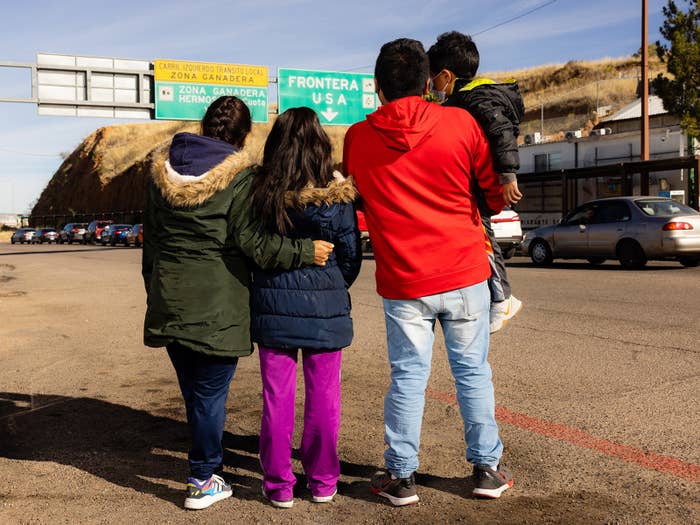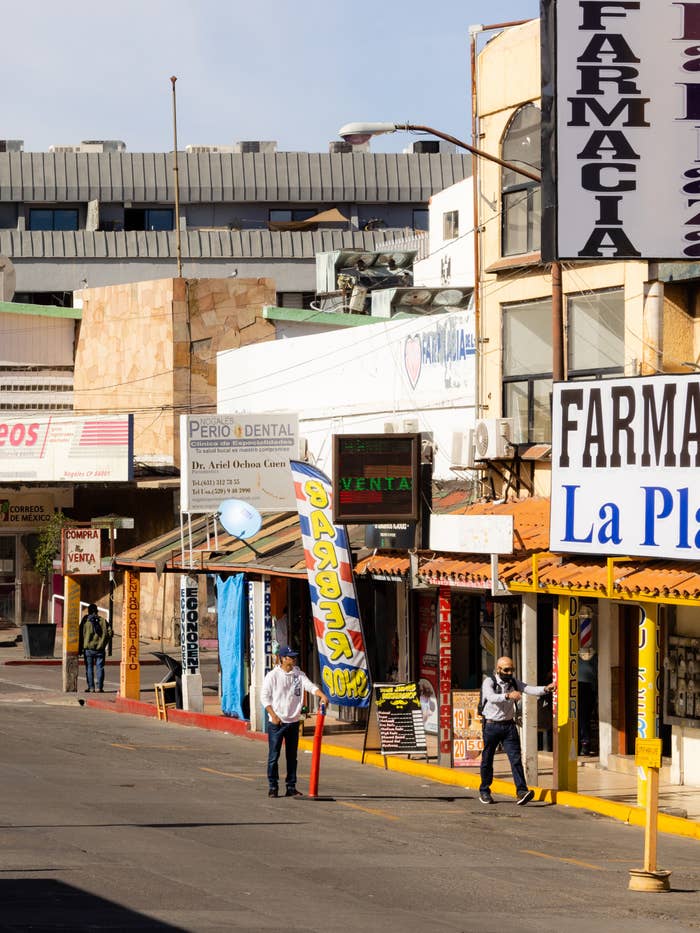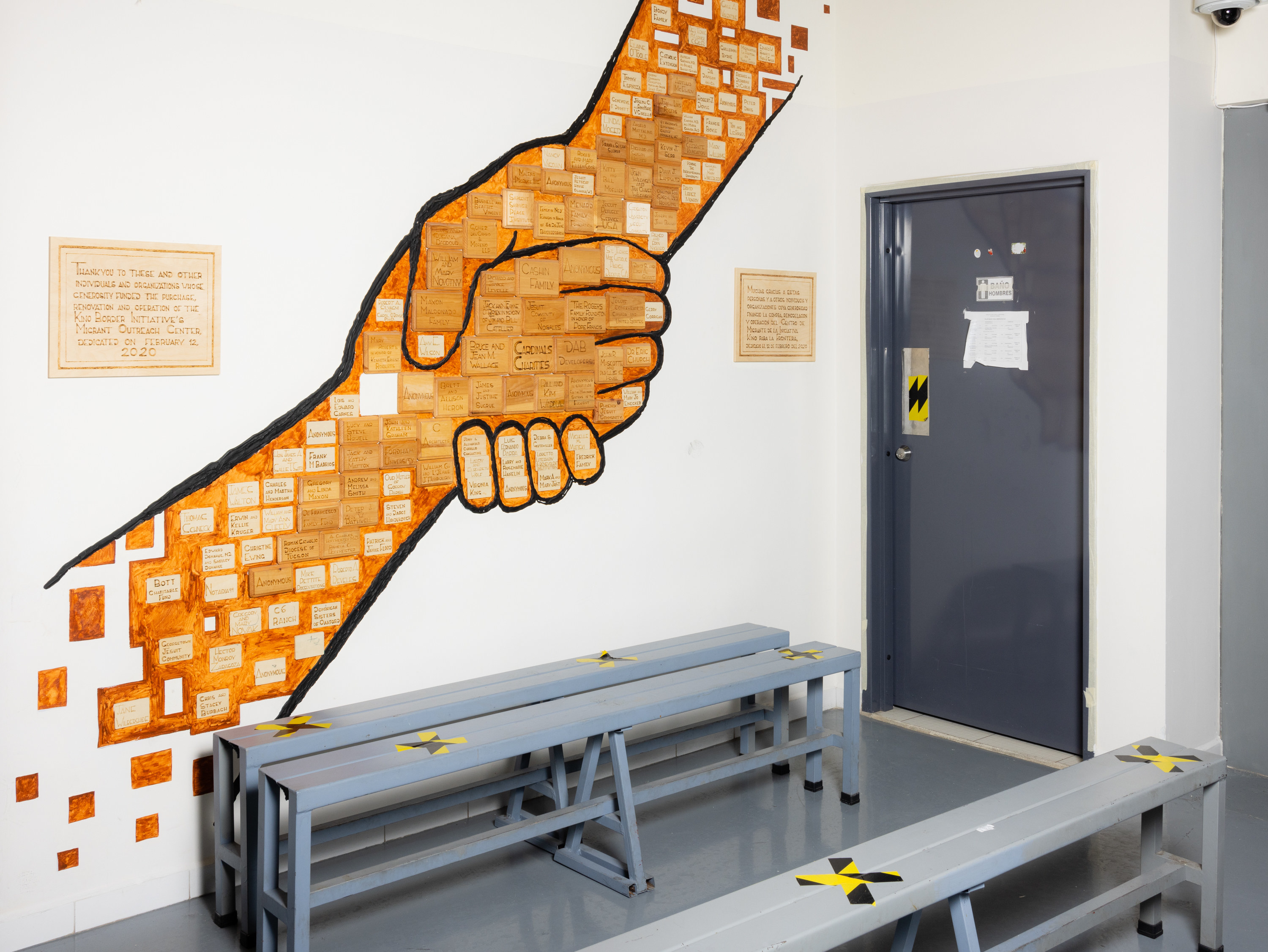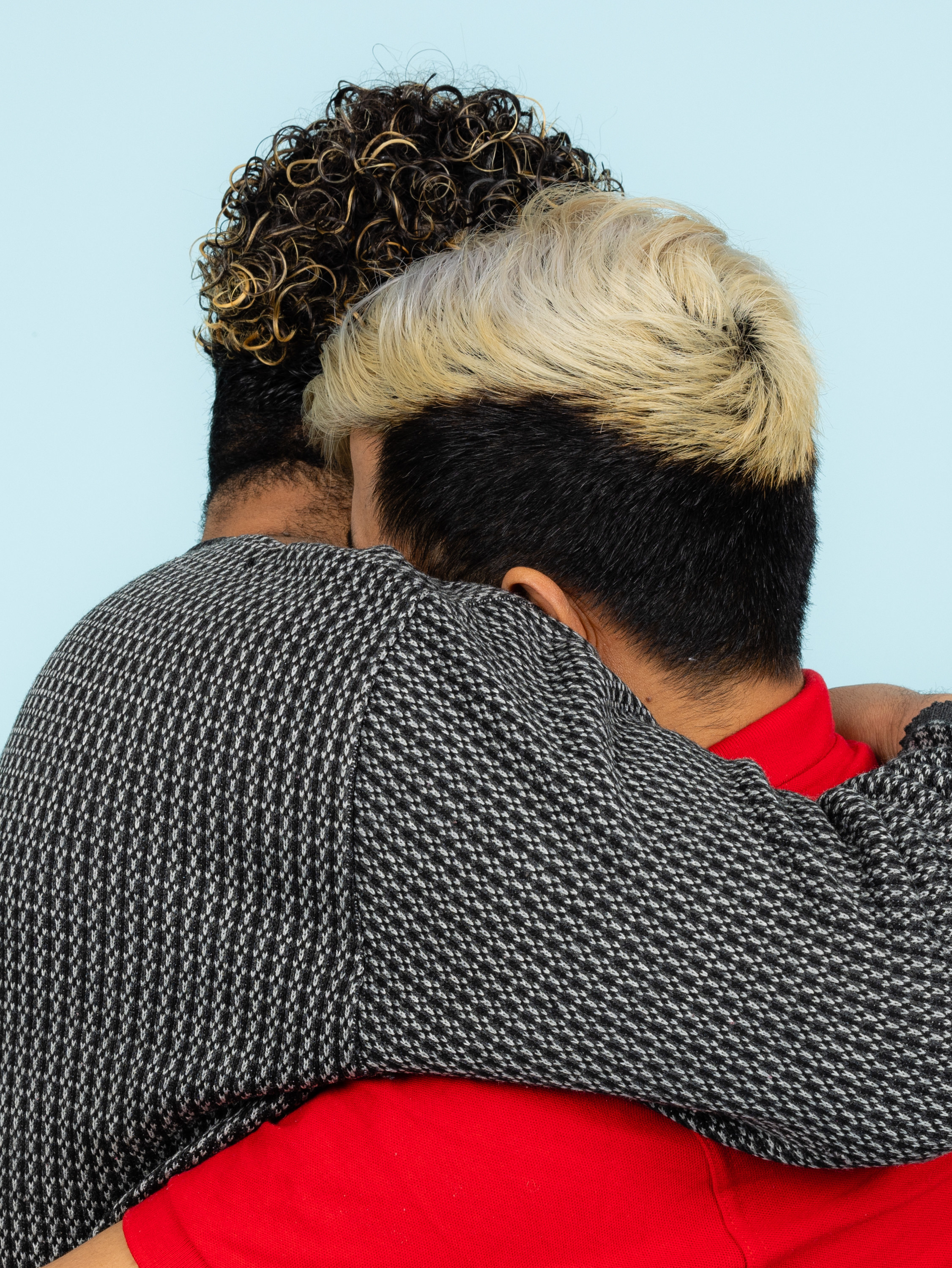
A child with a blood clot in her brain. A 7-year-old with a skin condition that threatened her organs. A couple who faced anti-gay threats back home. Every time, US border officials ignored or denied their requests for humanitarian parole without explanation, forcing the immigrants to wait in squalid, dangerous conditions in Mexico.
For months, attorneys in Nogales, Arizona, located along the US–Mexico border, have been waiting to hear back on the fate of their asylum-seeking clients who are particularly vulnerable to violence or need medical care they can’t get in Mexico.
Up until mid-December, the vast majority of the requests for humanitarian relief had yet to get a response. Officially known as humanitarian parole, it allows immigrants who are otherwise ineligible to enter the US to come into the country based on urgent humanitarian or significant public benefit reasons. It's also one of the few ways asylum-seekers can currently seek protection from within the US instead of abroad. That’s why advocates say timely decisions and specific information about why someone is denied are crucial.
Each day that passes means the asylum-seekers continue to wait in border cities where they’re often targeted for extortion, kidnapping, or assault, said Chelsea Sachau, an attorney with the Florence Immigrant & Refugee Rights Project, which provides free legal aid to detained immigrants facing deportation in Arizona and asylum-seekers in Nogales, Mexico.
It was only when she told Customs and Border Protection that she was going to ask members of Congress to intervene that the agency granted exemptions to four families, which allowed them to enter the US without humanitarian parole.
“It should not take a call to a congressperson for a child with blood clots in the brain or [a] tangled spinal cord to be considered urgent humanitarian circumstances and therefore allowed into the US,” Sachau said.
Part of the issue is that the statute that includes humanitarian parole is written in a way that gives a lot of discretion to CBP officials who often don’t include a reason as to why they’re denying the request. This makes it hard for attorneys to know what criteria their clients need to meet. There are also no guidelines for who qualifies for humanitarian parole.
Understanding why an immigrant is denied humanitarian parole is especially crucial now that it’s one of the few avenues for asylum-seekers to enter the US, Sachau said. Most immigrants and asylum-seekers at the border are currently being blocked from entering the country under a Trump-era policy the Biden administration has continued to use. Citing an obscure public health law known as Title 42 to contain the coronavirus, the US immediately expels immigrants at the border, blocking them from accessing the asylum system.
There used to be Title 42 exemptions for vulnerable immigrants through a lawsuit filed by the ACLU, as well as a separate process by which organizations chosen by the Biden administration identified people who were facing heightened risks in Mexico, but they no longer exist. So now, humanitarian parole is one of the few lifelines asylum-seekers have.
Sachau said she expected to have a more difficult time getting asylum-seekers exempt from Title 42 after the settlement talks ended and humanitarian groups stopped working with the government. However, she didn't expect to have them all be ignored or denied for months until attorneys warned border officials that their next call would be to members of Congress.
“We really are only submitting the most at-risk, the most vulnerable cases whose lives are threatened if they don't receive safety in the US,” Sachau said.
In a Dec. 9, 2021, letter to CBP and Border Patrol, Osborn Maledon, an Arizona-based law firm, called for transparency into the humanitarian parole process and said that while officials have the discretion to approve or deny these requests, their decisions are not exempt from judicial review.
Each humanitarian parole denial must include specific reasons in writing that would allow a court to determine whether the decision was legitimate, the letter said. Attorneys argued a lack of response to a request doesn’t meet legal standards that would allow for such a review, and that cursory denials stating the decision was made “on a case-by-case basis” failed to show that border officials had actually used their discretion.
The letter also called for US immigration officials to adjudicate humanitarian parole requests in a timely manner and publicize procedures on how to request it, in part because most immigrants don't have attorneys who are willing to argue their case.
In response to a message from Sachau asking why a request was denied, a program manager at CBP's Tucson field office said no guidelines exist on what criteria immigrants need to meet for humanitarian parole because they are considered case by case.
“I would recommend, although not required, the more documentation provided the better. That gives a better understanding of the situation,” the email added.
CBP and the Department of Homeland Security did not respond to BuzzFeed News’ requests for comment.
Of the 24 humanitarian parole requests that advocates have submitted in Nogales since August, five have been denied and four granted in the past two weeks, Sachau said.
“Just because it’s no longer 0% doesn’t mean all the things we laid out in the demand letter aren’t true, and we still have responses pending,” Sachau said.
One family waiting to hear if the US will allow them into the country to seek protection has an 11-year-old daughter who has seizures.

The Gonzalez family arrived at the Nogales, Arizona, border in July 2021. They were in a taxi near a bus station when men in police uniforms pulled the father, Manuel, out of the car. He was confused because the men were in uniform but they drove civilian vehicles without a police logo. The men asked for 1,500 pesos for each family member, but Manuel told them they didn’t have a lot of money; they took everything he had: 2,800 pesos, or about $137.
“They told us to leave and not say anything to anyone,” Manuel said.
Scared, the family hurried to an official border crossing and told CBP officers they were seeking asylum.
“They closed the door on us,” the mother, who asked to only be identified by her last name, Gonzalez, said. “They didn’t let us speak to anyone else and told us we couldn't be there.”
They’re currently renting a room without running water or electricity for about $122 a month. The children are scared of leaving the room because other people who live there are often using drugs, Gonzalez said. They slept on cardboard boxes until a friend gave them a mattress that they all squeeze onto at night.
The most pressing issue for the family, though, is their 11-year-old’s seizures. The family has seen doctors in Nogales, Mexico, but they can’t afford the specialists who can diagnose their daughter. They depend on a brother in Phoenix who sends them the little money he has.
“It’s very difficult being here when we had jobs and a stable life back home,” Gonzalez said. “But that was taken away.”
At their attorney’s suggestion, the family declined to go into the specifics of their asylum case but said they were fleeing death threats.

Joanna Williams, executive director of the Kino Border Initiative — a binational nonprofit based in Nogales, Mexico, and Nogales, Arizona, that works with immigrants — said it’s hard for US immigration officials to understand the true lack of access to medical care and security in Mexico.
“They view Mexico as a developed country, a country they partner with in many ways,” Williams said. “But there’s a big gap in their experience and the experience of migrants trying to access medical care in Mexico.”
Among those also hoping to beat the odds are Ruben and Cesar, a Honduran couple who face daily discrimination for being immigrants and gay. The couple fled Honduras after members of their neighborhood started to threaten them with violence. They knew going to the police wasn’t an option, because authorities had ignored similar threats made against other queer people. So rather than wait for things to get worse, the couple left for the US border last summer.
It was a long journey, Ruben said. They slept on the streets, hitchhiked, and were extorted by Mexican authorities along the way but managed to make it to the border.

“Even though people say God isn’t with gay people, we’ve seen God’s hand cover and protect us when we slept on the streets or beaches at night,” Ruben said.
They live in a room in Nogales, Mexico, crowded with other immigrants; their only privacy coming from sheets that surround the four corners of their mattress. Members of the local cartel are always parked outside, so they try not to go out if they can avoid it. But inside their cramped quarters, other immigrants make anti-gay remarks or laugh at them.
“We try to overlook the laughs and the bullying, but it’s not easy,” Cesar said. “The fear is that one day the homophobia will turn into a physical attack.”
There are days when the couple doesn’t know how they’re going to pay their rent, and finding a job is even more difficult due to discrimination, Cesar said.
“The hardest part about being here is not having the support of any friends or family,” Cesar said. “We’re rejected everywhere we go, and that’s why we try to stay within the walls of our four curtains.”
The couple spends most of their days on their phones, watching videos and learning English on Duolingo.
“My hope is that one day we can live somewhere where we don’t have to keep hiding, where we can show our affection for each other without fear,” Ruben said.
